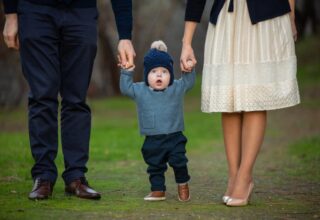How can I make sure my baby is walking correctly?
As a new parent, watching your baby take their first steps is an exciting milestone. However, it’s natural to worry about whether they are walking correctly and developing at the right pace. Walking is a complex motor skill that involves balance, coordination, and muscle strength. It’s essential to ensure your baby is walking correctly to prevent any future developmental issues. In this article, we’ll discuss how you can make sure your baby is walking correctly and offer tips on how to support their development.
Understanding the stages of walking
Before we dive into how to make sure your baby is walking correctly, it’s important to understand the stages of walking. The first stage is when your baby starts to pull themselves up to a standing position. The second stage is when they take their first steps while holding onto something, such as furniture or your hand. The final stage is when they can walk on their own without any support. It’s important to note that each child develops at their own pace and that there is no set timeline for walking.
Signs that your baby is walking correctly
There are a few signs that your baby is walking correctly. First, they should be taking steps with their feet flat on the ground. If your baby is walking on their tiptoes or the sides of their feet, it could be a sign of a developmental issue. Second, their legs should be straight when they step. If your baby’s legs are bending excessively or they are waddling, it could be a sign of a problem. Third, their arms should be down by their sides or slightly out for balance. If your baby is holding their arms up or out for balance, it could indicate a balance or coordination issue.
Tips for supporting your baby’s development
There are several things you can do to support your baby’s development and ensure they are walking correctly. First, make sure your baby has plenty of tummy time. Tummy time helps to strengthen their neck, back, and arm muscles, which are all important for walking. Second, provide your baby with plenty of opportunities to practice standing and walking. You can do this by holding onto their hands and walking with them or by providing them with a push toy to help support them. Third, make sure your baby is wearing the right shoes. Shoes that are too big or too small can affect their balance and coordination.
When to seek help
If you have concerns about your baby’s walking or development, it’s essential to speak to your pediatrician. They can assess your baby’s development and determine if any intervention is needed. Some signs that you should seek help include if your baby isn’t walking by 18 months, if they are walking on their tiptoes, or if they consistently fall or stumble.
Conclusion
Watching your baby take their first steps is an exciting milestone, but it’s natural to worry about whether they are walking correctly. By understanding the stages of walking, looking for signs that your baby is walking correctly, and supporting their development, you can help ensure that they are developing at the right pace. If you have any concerns about your baby’s walking or development, don’t hesitate to speak to your pediatrician.
FAQs
How can I tell if my baby is ready to start walking?
A: Your baby may start to pull themselves up to a standing position and take steps while holding onto furniture or your hand.
Is it normal for my baby to walk on their tiptoes?
A: No, it’s not normal for babies to walk on their tiptoes. If your baby is walking on their tiptoes, it could be a sign of a developmental issue.
Can wearing the wrong shoes affect my baby’s walking?
Yes, wearing the wrong shoes can affect your baby’s walking. Shoes that are too big or too small can affect their balance and coordination, and shoes with stiff soles can make it harder for your baby to feel the ground beneath their feet. It’s important to choose shoes that fit well and are flexible enough to allow your baby’s feet to move naturally.
What can I do to help my baby learn to walk?
A: You can help your baby learn to walk by providing them with plenty of opportunities to practice standing and walking, offering support as needed, and encouraging them with praise and positive reinforcement.
When should I be concerned about my baby’s walking development?
A: You should be concerned if your baby isn’t walking by 18 months, if they consistently walk on their tiptoes, or if they frequently fall or stumble. If you have any concerns about your baby’s development, it’s best to speak to your pediatrician.
How useful was this post?
Click on a star to rate it!
Average rating 0 / 5. Vote count: 0
No votes so far! Be the first to rate this post.




